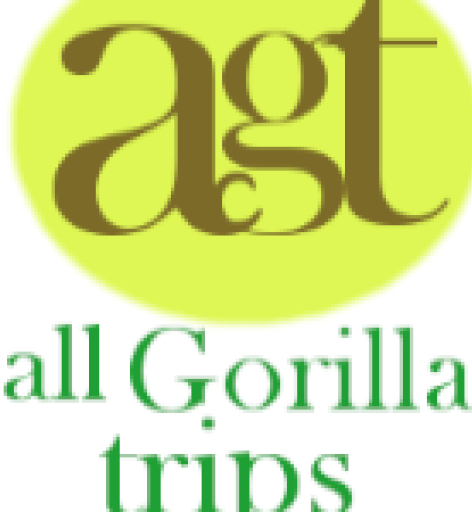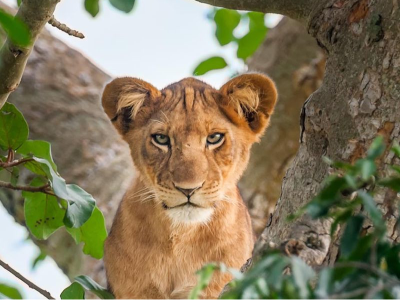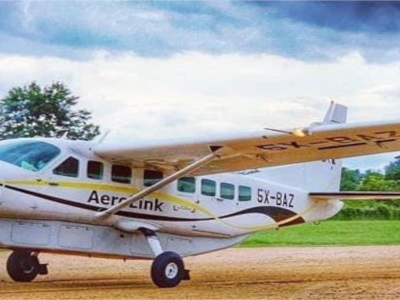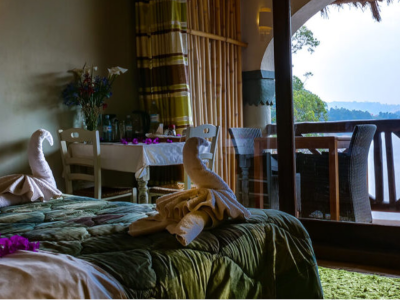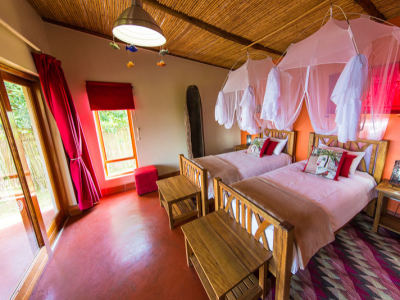The Boma – Entebbe
The Boma – Entebbe
Entebbe | Kampala | Lake Victoria | Ngamba Islands
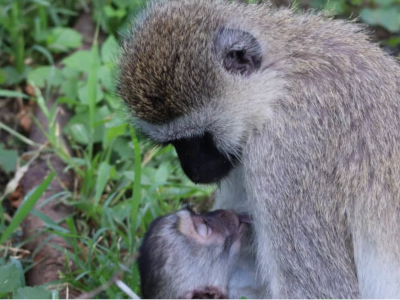
Entebbe - Kampala - Lake Victoria - Ngamba Islands
Entebbe is 35 km from Kampala, the Capital city of Uganda, Entebbe was the original capital of the country. The International Airport is on the shores of Lake Victoria and all passengers arriving by air will pass through Entebbe at some point.
The town straddles the equator and is sorrounded by the lake shore forests with trees towering above the short buildings. There is no real town centre and as with most Ugandan cities public transport is essentially by bicycle, motor bike (Boda boda) or matatu.
The worthwile places to visit are the Entebbe Botanical Gardens and the Uganda Wildlife Education centre formerly the Zoo. There are some rescued animals here including shoebill, red forest hog, chimpanzees, otters and buffalo.
The Botanical Gardens themselves are very interesting, established in 1902 over around 30 ares of land on the edge of Lake Victoria. Hundreds of exotic and indeginous specimens with a fairly large area that's been allowed to turn back to forest, loads of orchids, ferns, butterflies and birds.
Fishing trips and half day, full day or overnight trips to Ngamba Island Chimpanzee Sanctuary embark from Entebbe jetty on the lake shore opposite the Uganda Education Wildlife Centre.
Lake Victoria
This is the world's second largest fresh water lake at 68,000 sq km and is as large as Ireland. A shallow lake it's deepest part reaching 80m, the water straddle the equator and consequently as high has a high rate of evaporation which has a major effect on the local climate causing cloudy skies in the morningd, clearing in the afternoons.
It is widely accepted to be the source of the Nile River. Rivers from west Kenya, north Tanzania, Burundi and Rwanda all feed the lake and feeding the river as it journeys 6000 km to the Mediterranean Sea
Hundreds of Islands litter the northern Uganda shore with swamp bays lying in between. These papyrus swamps provide an excellent habitat for the Sitatunga-antelope. Habitation is mainly small fishing villages that live of trading Nile perch, Tilapia and the tiny silver fish.
Transfers to Ngamba Island, the private Chimpanzee sanctuary on Lake Victoria all depart from Entebbe. The actual boat transfer is 23 km that usually takes around an hour in a traditional canoe boat or 45 minutes in a speed boat.
Ngamba Island
Ngamba Island is part of the Koome group of Islands located on Lake Victoria, 23 km south of Entebbe. It consists of approximately 100 acres, 98 of which are forested and seperated from the visitor's area by an electric fence. The Island was officially opened to visitors in October 1999 and is currently home to about 42 chimpanzees. Chimps need a range of about 100 acres each so this habitat is seriously inadequate.
The overnight enclosure has been designed to accommodate a maximum of 60 chimps which the keepers report could be filled within a day or two of having made a few phone calls. There is talk of another Island having been earmarked as a chimp sanctuary to swell the land available for the chimpanzees.
Ngamba Island is a project of Chimpanzee Sanctuary and Wildlife Conservation Trust (CSWCT), eastablished in 1997 by the Born Free Foundation(UK), International Fund for Animal Welfare(USA), The Jane Goodall Institute(Germany and Uganda), The Uganda Wildlife Education Centre Trust (UWECT) and the Zoological Board of New South Wales(Australia) and it provides these orphaned chimpanzees with a secure home to live out their lives, since a return to their natural habitat is not possible.
All activities on the Island are conducted by CSWCT - half and full day trips, an overnight stay, care giver for a day, Ngamba forest walks with the chimps, extended care giver stays. Special medical requirements and additional inoculations are required of any body doing the forest walk or care giver activities - these have to be dealt with well in advance.
What strikes visitors is how dedicated these people are to the job and more so, how they interact with the chimps. These creatures are total dependents and are completely reliant on the individuals and teams that take care of them.
Read more
